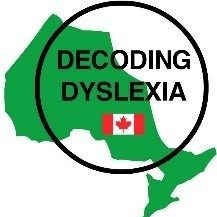01
Recognize the signs.
Early signs of dyslexia include difficulty learning the alphabet, rhyming and sounding out simple words like “cat.” Dyslexia is often inherited; find out if others in your family have dyslexia. To learn what dyslexia looks like at all ages, we recommend the following websites:
02
Identify early.
Currently in Ontario, most children are not diagnosed until after grade 3 when they are already falling behind their peers in other areas of learning. Don’t wait! Dyslexia can be identified as early as age 5½ with 92% accuracy.
03
Find effective reading instruction.
If your child is diagnosed with dyslexia, don’t despair! Children with dyslexia can learn to read through early intervention and evidence-based reading instruction called “structured literacy.” While early intervention is best, effective reading instruction can be successful at any age.
- Find structured-literacy based reading programs in your area
“Early intervention is key. If you’re struggling, reach out for help — whether it be a trusted teacher, friend, or another parent in the dyslexia community.”
Lark Barker, Ontario parent, educator and dyslexia advocate
04
Reach out for help.
If you’re concerned about your child’s reading, talk to your school, doctor, child psychologist or speech-language pathologist. Reach out to the dyslexia community (we’re on Facebook!) to connect with other parents.
05
Make reading fun!
Reading is hard work for children with dyslexia, so make it easy and fun for your kids to read for pleasure. Get easy-to-read, decodable books and picture books for your young child. Encourage your older child to read stories in different formats, such as comic books, graphic novels, downloadable books and audio books. Read out loud together — this is recommended at all ages.
- A fun and free guide for parents to understand and teach early literacy skills at home: Games to Promote Early Literacy – Rhode Island Department of Education
- List of suggested decodable books from the International Dyslexia Association Ontario
- Tips for encouraging reading and writing from Understood
- Get access to audio books by subscribing to the Centre for Equitable Library Access (it’s free for people with dyslexia) or through your public library
- For online reading, use an Immersive Reader, such as Microsoft OneNote or a free extension for Google Chrome
06
Build self-confidence and self-advocacy skills.
Difficulties at school can affect a child’s self-esteem and mental health. Help your child understand dyslexia: Explain why it’s harder for them to learn to read, that they are just as capable as any other child and that they will learn to read with effective instruction. Help your child figure how they learn best (for example, do they like using a screen reader? do they need more time to write a test?) and teach them how to self-advocate. Help them find what they are good at, and what they love to do.

